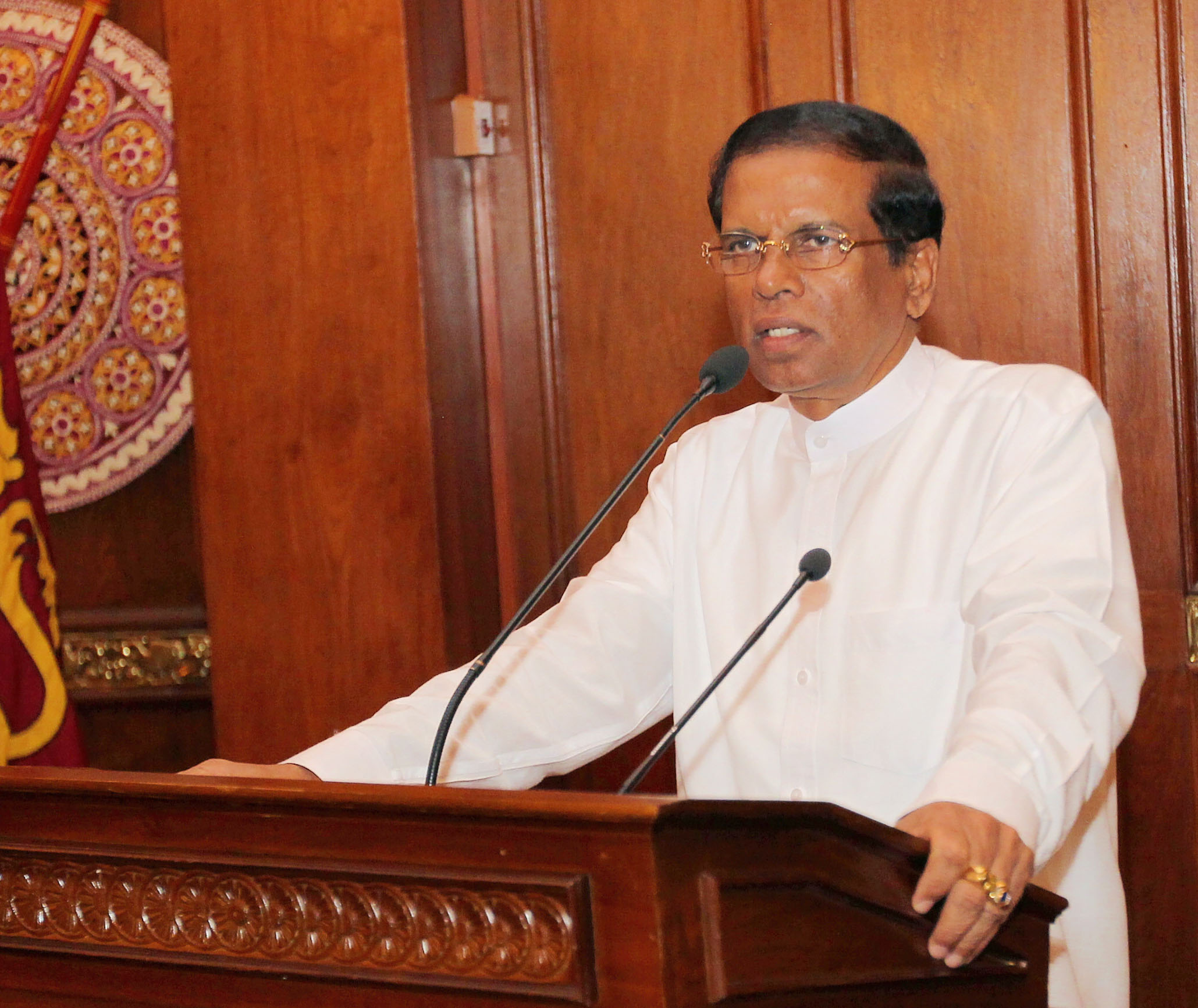Sri Lanka called off debate on national unity govt formation

- Country:
- Sri Lanka
The parliamentary debate on a resolution to form a national unity government in Sri Lanka was put off on Thursday after the government held back a proposal over it, days after President Maithripala Sirisena said he is opposed to any such move. A motion which was to be tabled in Parliament for approval for the formation of the national government was held back, ruling United National Party (UNP) general secretary Akila Viraj Kariywasam said.
“The proposal will not be presented today," he said. The motion if approved would have enabled Prime minister Ranil Wickremesinghe to expand his Cabinet and more importantly to secure the simple majority.
Wickremesinghe is stuck with limiting his Cabinet to 30 members in terms of the 19th amendment to the Constitution. He could expand it only in the event of forming a national government with another party. Since the restoration of Wickremesinghe as the prime minister in mid-December at the end of a major constitutional impasse, the government has lacked a simple majority of 113 in the 225-member House.
The national government formation would have allowed members from President Maithripala Sirisena’s Sri Lanka Freedom Party (SLFP) defectors to join the government. Sirisena in his National Day address this week slammed the move to form a national government saying it was unethical to do so with a party which had just one member, the Sri Lanka Muslim Congress.
The President said he is opposed to forming a national government only to expand the Cabinet of ministers and attain more privileges, indicating that his rift with Wickremesinghe was far from over. Wickremesinghe was sacked by President Sirisena in October last year and strongman Mahinda Rajapaksa was appointed the prime minister. The president also removed the members of his SLFP from the national unity government.
The UNP, with 106 seats, had joined hands with the Sirisena's SLFP in 2015 to form a unity government. Sirisena was forced to reappoint Wickremesinghe as the prime minister after Rajapaksa failed to prove his majority twice in Parliament.
Since his reappointment, the Wickremesinghe-led government has been functioning without the required majority of 113 in the House. Wickremesinghe plans to set up a national government by entering into a pact with the solitary member from the Sri Lanka Muslim Congress while roping in the members from Sirisena's Freedom Party.
The year 2019 is a crucial year for Sri Lanka as the next presidential election is scheduled to be held between November this year and early January 2020. Wickremesinghe's party has already announced that they would not back the president again due to the ongoing rift between Sirisena and Wickremesinghe. Rajapaksa cannot contest again as he had been twice president before. The former president's new Sri Lanka People's Party is less inclined to back Sirisena. The Rajapaksa-led opposition has been demanding to hold of fresh elections ahead of its schedule in August 2020.
(With inputs from agencies.)
- READ MORE ON:
- Maithripala Sirisena
- Mahinda Rajapaksa
- President of Sri Lanka
- Ranil Wickremesinghe
- Sri Lanka
- Ella- Sri Lanka
- Flag of Sri Lanka
- Members Only
- Member of Congress
- Member of Parliament
- Bathroom cabinet
- Filing cabinet
- Kitchen cabinet
- unity government
- government
- Viraj Kariywasam
- Sri Lanka Freedom Party
- formation
- party
- Parliament
ALSO READ
Muslim community members in US decline White House Iftar dinner invite: media reports
Palestinians want April vote on UN membership despite US saying peace with Israel must come first
8 gunmen and 5 security force members die in clashes in Iran's southeast, state media report says
Sonia Gandhi, Ashwini Vaishnaw, among 14 sworn in as RS members
Kuwait holds first parliamentary election under new Emir










